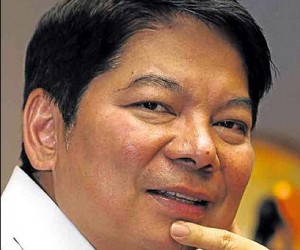
Following reports that the Philippine economy grew by 6.6 percent in 2012, BSP Governor Amando Tetangco Jr. on Thursday said the central bank was prepared to implement more bank regulations on foreign portfolio investments if risks of financial-sector instability became pronounced. INQUIRER FILE PHOTO
The Bangko Sentral ng Pilipinas (BSP) said the robust growth of the economy had allowed it to become stricter against excessive foreign portfolio investments and help keep stability in the country’s financial markets.
With a strong pace of economic growth, the BSP said it could focus on helping maintain financial-sector stability, like regulating unhealthy surges in foreign capital inflows.
Had the economy’s growth been anemic, regulators would have been a bit tolerant of surges in foreign capital inflows, which could be a source of funds for investment activities.
Following reports that the Philippine economy grew by 6.6 percent in 2012, BSP Governor Amando Tetangco Jr. on Thursday said the central bank was prepared to implement more bank regulations on foreign portfolio investments if risks of financial-sector instability became pronounced.
“This (robust economic growth) gives us more degree of freedom to adjust our market operations and institute other macroprudential tools as appropriate to ensure that volatilities in financial markets do not translate into excesses in other sectors of the economy,” Tetangco told reporters.
For the BSP, foreign portfolio investments were welcome, especially since these would help make the country’s stock and bond markets more vibrant. However, the BSP said excessive amounts of portfolio investments should be avoided because these have a tendency to cause volatility in the financial markets.
For instance, too much dollar inflows could cause the peso to sharply appreciate against the US dollar.
The BSP said it did not have a bias in favor of a strong or weak peso, but stressed that extreme volatility of the exchange rate should be avoided because it was bad for businesses, especially those engaged in import and export.


